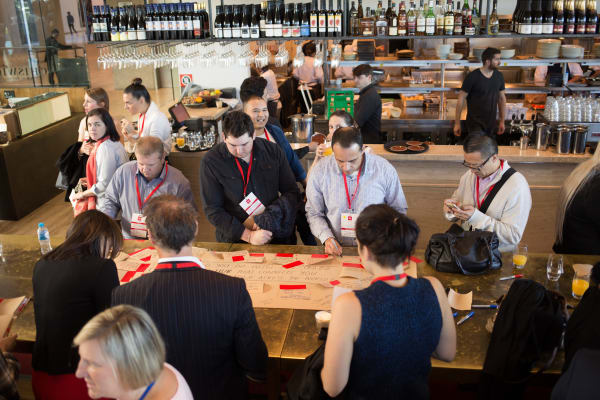Working as a team is the source of both satisfaction and frustration. Between concessions, respect and authority, sometimes difficult to find a balance! To get the benefits without the inconvenience, these keys will help you set up the virtuous circle of the effective team!

Share goals
Nobody is sure of where they want to go... but what is certain is that we can not get anywhere unless we set a goal.
In times of crisis, complex configuration or uncertainty, it is important to have a clear vision to share with their teams. The important thing is not that it is fixed (it can evolve), but that it is shared.
It is not only the motivation of all, but also the ability to put in place well-founded actions.
Adopt clear rules of life
It is the stress and anxiety that puts people under pressure and causes most non-constructive and inadequate behaviors.
In our turbulent times, it is important to compensate for external uncertainty by reassuring employees with clear rules that do not change every four mornings.
These rules of life bring together two things.
1. The hygiene of life
These are the means given to employees to reconcile work and family life, for example:
* no meeting after 6.30 pm with exception;
* no work on weekends with exceptions or periodic penalties linked to the activity and defined in the contract of employment;
* the exception must remain the exception.
2. The rules of life in an open-space
It is the respect of the concentration of each one:
* speak quietly;
* do not slam doors;
* make a call in a room provided for this purpose...
Ensuring effective meetings
Meetings can be tremendous ways to solve problems and find creative solutions. But they can also constitute the most boring hours of the day, drag on and lead to nothing.
For meetings to be constructive it is necessary to:
* never organize a meeting without an agenda, with clear and precise objectives.
* never make a meeting last longer than 2 hours: beyond, the concentration decreases and the team is ineffective.
* start meetings on time and finish them on time: failure to respect schedules generates disorganization, idleness (it is difficult to start something when a meeting is imminent), frustration and annoyance. In the long term, it can provoke aggression or demotivation (feelings of being stuck, fear of seeing a meeting last while the children wait at school or still miss the sporting course that soothes...).
* conduct a brief and accurate account and take it into account for future action.
Facilitating constructive communication between people
It is about fostering the expression that allows each person to feel considered.
* to forbid judgments and a priori.
* let everyone express themselves independently of their experience or specialization.
* let everyone go to the end of his explanation without cutting off the speech (it is sometimes believed to have already understood... wrongly).
* to limit oneself to a limited talk time to allow everyone to express themselves: do not monopolize speech.
* to talk about facts, not judge people and separate facts from personal impressions.
Finally, always bear in mind that chaotic tensions and periods are essential phases for creativity and the emergence of new and constructive solutions. It is simply a matter of channeling them and orienting them.
Know the skills of some...
Everyone has unformalised skills, personal or professional experience that could be useful to the company.
Valuing these skills is a double blow:
* the employees feel valued as a person, and are therefore more motivated.
* the company does not have to look for (and pay for) the skills it already has!
Concretely, it is a question of identifying the skills and experience of each, and making this information available to all (table excel, intranet...)
* it is also useful when an employee is absent and has to be replaced.
* fostering mutual aid increases tenfold strengths and potentials.
... and the limits of others!
It is also interesting to know the limits of each one in order to take this into account: such an excellent collaborator but does not support noise, or needs to leave at the scheduled time in the evening, or needs such support or information to feel confident...
Be careful to spare no one to push anyone into his entrenchments, at the risk of undermining the dynamics of the group.
Ensure the cohesion of the team
Despite the pressure, it is important to take warm time (shared meal, seminar...). These moments:
* weld teams;
* change the way in which they look at each other;
* awaken momentum and motivation;
* allow to know each other better.
No comments:
Post a Comment